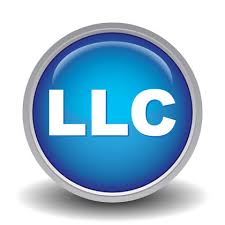- Home
- Questions and Answers
- Single Member LLC
LLC Member Draw Bookkeeping Question
by Angie
(Brentwood CA)
The owner of the LLC Corp draws his salary from the "Member Draw" GL.
The type of GL shows as an "Equity- gets closed."
i just want to confirm this is correct.
I also was curious for regular payroll with employee's taxes etc...
The portion the company is responsible for is automatically being coded to "cost of sales" which doesn't seem correct to me.
We do not have Sales per say in our company, we are a Consulting firm. But this was confusing me. What is the correct "Type" of GL for this?
Thank you, I eagerly await your response.
A Lehr
Comments for LLC Member Draw Bookkeeping Question
|
||
|
||
|
||
Single Member LLC
by Dave
(Wiscosnin)
I'm currently dealing with a challenging scenario with one of my clients and could use some guidance or suggestions on the best way to proceed. This particular client owns a business that was originally established as an LLC. Earlier in the year, he had planned to convert this LLC into an S-Corporation but ultimately decided against proceeding with the change.
Despite this, during the interim period when he was considering the conversion, he set himself up as an employee of his own business. This included drawing a regular salary with the appropriate taxes being withheld, a practice he continued until midway through the following year.
The predicament I find myself in is that I understand this is not permissible for a Schedule C filer, which is the category he falls under. I'm at a loss as to what should be done next in this situation.
One possible solution that I'm considering is to amend the 941's and state withholding forms that were previously filed to account for his personal payroll. Once this is done, the next step would be to wait for the refunds to be processed. However, I'm concerned about the potential red flags this might raise.
On the other hand, I'm wondering whether it would be more prudent to simply proceed with filing the W-2 and not take any additional action, considering that the taxes on his paycheck have already been paid in full.
I would greatly appreciate any opinions, insights or resources you might be able to provide to help me navigate this complex situation. Thank you in advance for your assistance.
Comments for Single Member LLC
|
||
|
||
Please subscribe to my monthly newsletter, Bookkeeping Basics E-zine. It tells you every month about the new information that I have added, including some great tips and advice from myself and other Bookkeeping Basics readers.
Like Bookkeeping-Basics.net?
- Home
- Questions and Answers
- Single Member LLC














